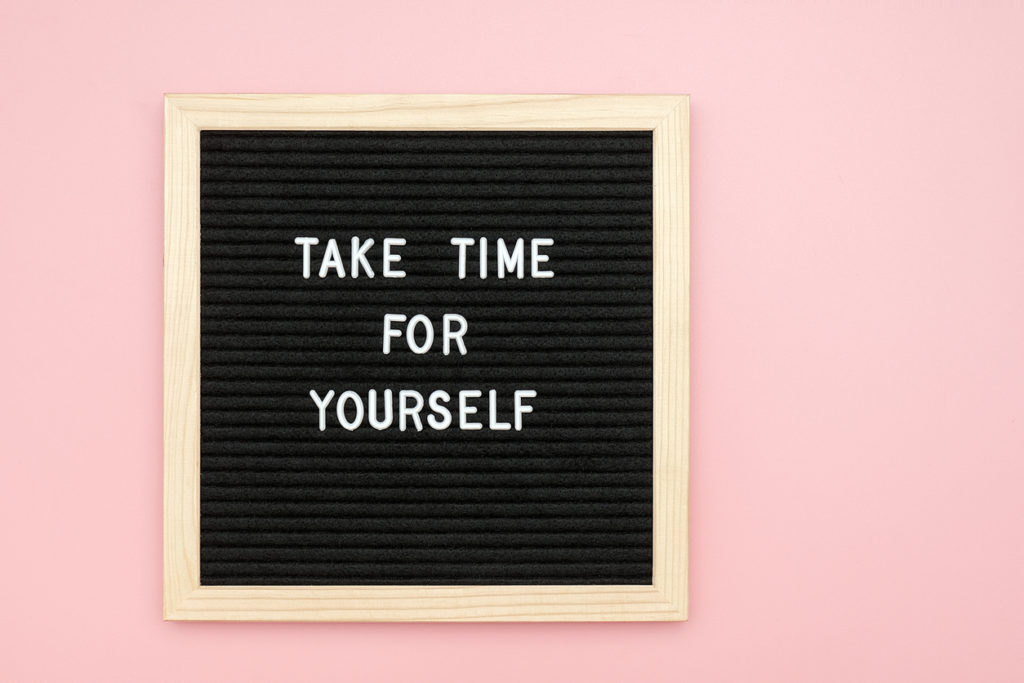
Though this autumn has been unseasonably warm in many places, cold weather will be upon us shortly—and it may be more challenging than usual this year due to a worldwide pandemic forcing many of us indoors and into isolation. Self care is important. Here are some ways to help get you through.
Skin care is self care.
Aging skin tends to really take a hit in the winter months. Keep it soft and supple by moisturizing regularly. No need for greasy creams—a slightly heavier, water-based moisturizer with natural oils should do the trick. For that extra dry skin on the elbows, knuckles, and cuticles, rub on a bit of coconut oil.
And of course, don’t neglect your skin down there. Maintain vaginal and vulvar skin health with a water-based, non-irritating moisturizer.
Soak up the sun.
During the fall and winter, daylight saving time ends, UV rays decline, and the temperature goes down. Combined with the fact that many of us work during the day, these conditions make it extra hard for most people to get outdoors during peak sunlight hours.
When possible, set aside some time—even 10-15 minutes—to bundle up, step outside, and bask in the sun’s rays. Sunlight contains vitamin D, which may help to boost mood and improve symptoms of depression. If you still find it hard to get outdoors, or live in an area with reduced sunlight, consider asking your doctor or mental health provider about light therapy, a treatment that mimics the sun’s health benefits and provides those mood-boosting qualities we enjoy during bright summer days.
Include exercise in your self care routine.
Just because the temperature drops, doesn’t mean you can’t continue to stay active in the winter and engage in activities you enjoy, both indoors and out.
With more people at home right now because of the pandemic, many companies are transitioning to virtual formats for activities typically done at your local gym. And no, you don’t need fancy exercise equipment to participate. A quick search through your TV channels or streaming service should provide plenty of free (or inexpensive) options, such as dancing, basic Pilates, or yoga.
For a fun outdoor activity that’ll stir up childhood nostalgia, head to a local outdoor ice skating rink. Many cities offer this as a free community activity, along with skate rentals and walkers for those new learners or folks with limited mobility.
Whether you’re indoors or out, it’s important to engage in activities that get you moving as part of your self care routine. Regular exercise helps manage menopause symptoms and improves your overall mood and wellbeing.
Relax and recharge.
Staying active is important, but it’s equally important to rest and recharge your body and mind to maintain optimal winter self-care. Along with your green tea and good book, cozy up with a pen and notebook (or a laptop), and spend some time writing every day. Getting our thoughts out on paper through journaling helps us make sense of our emotions, stimulate creativity, and become more self-aware. It can even help improve mood and increase gratitude. Not sure what to write about? Look up “journal prompts” for some ideas to get you started.
Practice mindfulness meditation.
Gone are the days when meditation was considered an alternative form of self care practiced only by a select few. Today, people recognize the numerous health benefits of meditation and practice it regularly using the many tools and resources available.
But you don’t need an app to start meditating; you can do it on your own in just a few minutes a day. To start, find a quiet location with minimal distractions. Sit comfortably, close your eyes, and focus on your breath moving in and out. If thoughts distract, acknowledge them but then come back to your breathing. Continue practicing in short bursts, gradually increasing the time as your focus deepens. Before long, you’ll start to notice subtle improvements in areas such as mood, patience level, and productivity.
Maintain a healthy diet.
Continue to manage your menopause symptoms that may worsen during the winter months— such as fatigue, mood, and aching joints—by maintaining a healthy diet. This is easier said than done, especially if you live in a harsh climate where fruits and vegetables are imported and more expensive. But it’s important to do what you can to help your body get the supplements it needs.
***
Start implementing the self care ideas listed above, and you’re on your way to staying happy, warm, and healthy this winter—no matter how low the temperature drops.